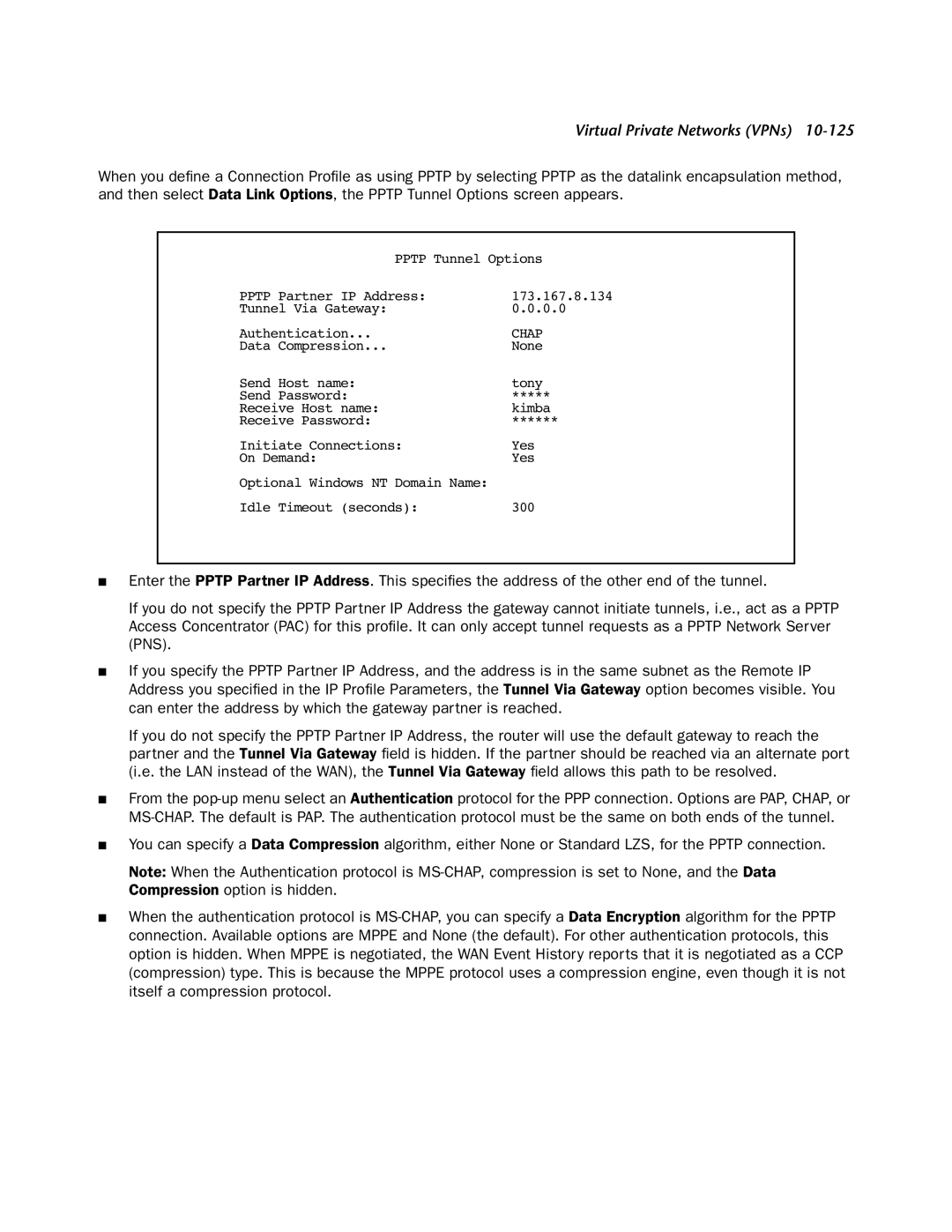
Virtual Private Networks (VPNs)
When you define a Connection Profile as using PPTP by selecting PPTP as the datalink encapsulation method, and then select Data Link Options, the PPTP Tunnel Options screen appears.
PPTP Tunnel Options
PPTP Partner IP Address: | 173.167.8.134 |
Tunnel Via Gateway: | 0.0.0.0 |
Authentication... | CHAP |
Data Compression... | None |
Send Host name: | tony |
Send Password: | ***** |
Receive Host name: | kimba |
Receive Password: | ****** |
Initiate Connections: | Yes |
On Demand: | Yes |
Optional Windows NT Domain Name: |
|
Idle Timeout (seconds): | 300 |
■Enter the PPTP Partner IP Address. This specifies the address of the other end of the tunnel.
If you do not specify the PPTP Partner IP Address the gateway cannot initiate tunnels, i.e., act as a PPTP Access Concentrator (PAC) for this profile. It can only accept tunnel requests as a PPTP Network Server (PNS).
■If you specify the PPTP Partner IP Address, and the address is in the same subnet as the Remote IP Address you specified in the IP Profile Parameters, the Tunnel Via Gateway option becomes visible. You can enter the address by which the gateway partner is reached.
■
■
If you do not specify the PPTP Partner IP Address, the router will use the default gateway to reach the partner and the Tunnel Via Gateway field is hidden. If the partner should be reached via an alternate port (i.e. the LAN instead of the WAN), the Tunnel Via Gateway field allows this path to be resolved.
From the
You can specify a Data Compression algorithm, either None or Standard LZS, for the PPTP connection.
Note: When the Authentication protocol is
■When the authentication protocol is
